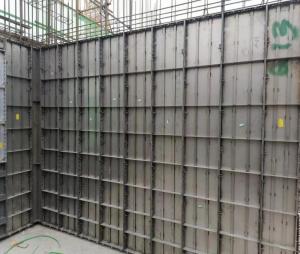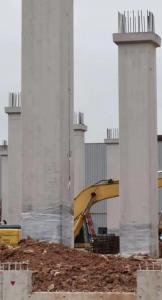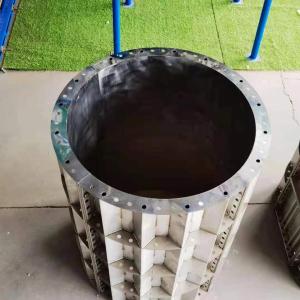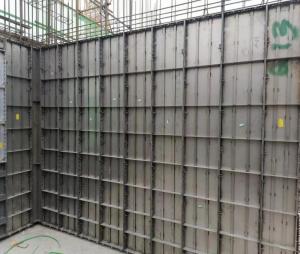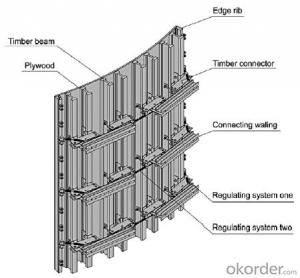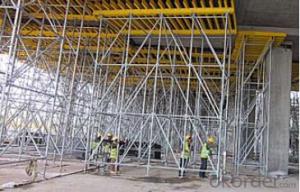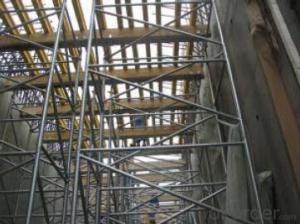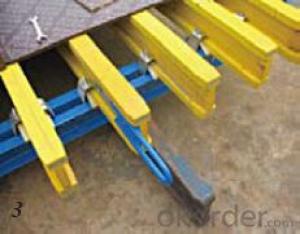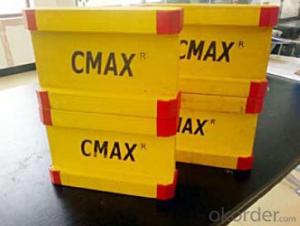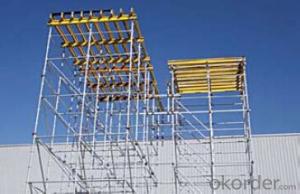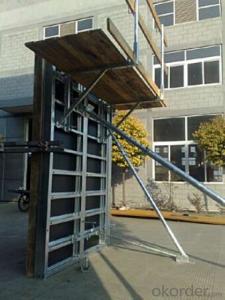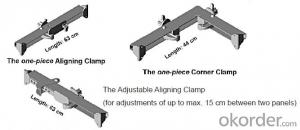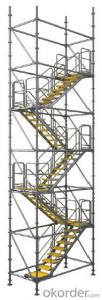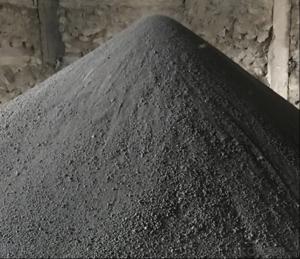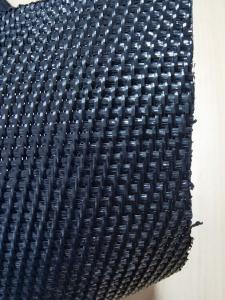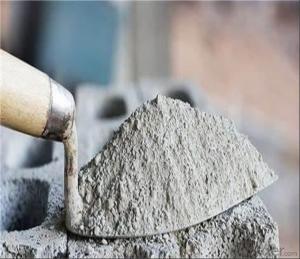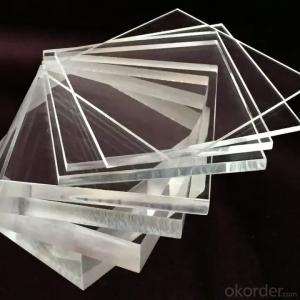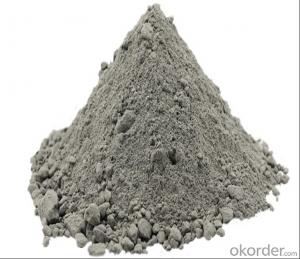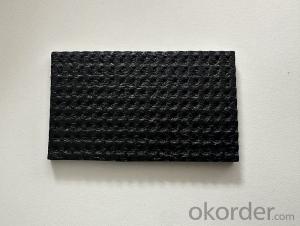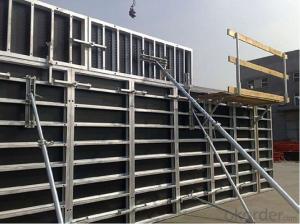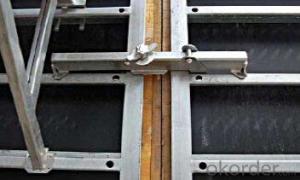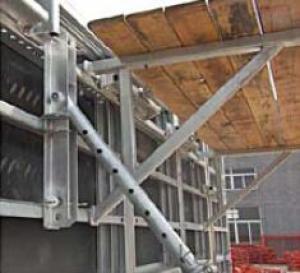Best qaulity of wall steel formwork, Stainless Steel Formwork,formwork for concrete walls
- Loading Port:
- Shanghai
- Payment Terms:
- TT or LC
- Min Order Qty:
- 1 set
- Supply Capability:
- 1000000 set/month
OKorder Service Pledge
OKorder Financial Service
You Might Also Like
Stainless steel formwork
Replaceable size aluminum formwork:400X1200mm , 400X1500mm
FORMWORK FOR building PROJECTS
Composition:
Painted steel frame with 3,5mm profiles
5mm stainless steel sheeting
Sheets welded from behind
Specifications :
Modular panel formwork
Panel thickness 12cm
Extremely strong and rigid
Fully compatible with the MF-80 system
Large size panels
Limited number of parts
High pressure resistance, minimum 100kN/m²
Long life expectancy
Stainless although magnetic sheets
Advantages:
1 Stainless steel formwork, 100% follow the design of aluminum alloy formwork system, it is interchangeable, compatible and can be used together with aluminum formwork at the same time .
2It is made of high-strength stainless steel strip by rolling and laser welding. It has good corrosion resistance and high density,is not easy to rust and has no fire hazard.
3Long service life, many turnover times, high recycling value
The number of turnovers is large, especially the characteristics of no dust, no need to brush or less mold release agent, and the characteristics of low renovation costs will bring unlimited optimistic prospects to it.
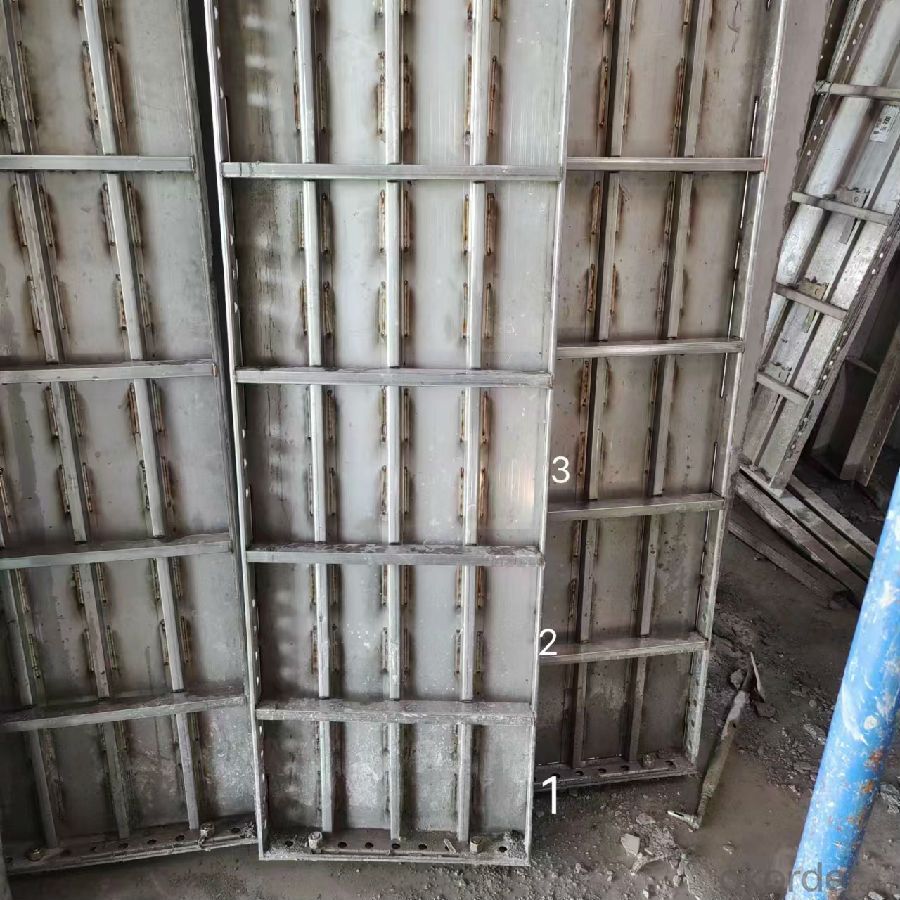
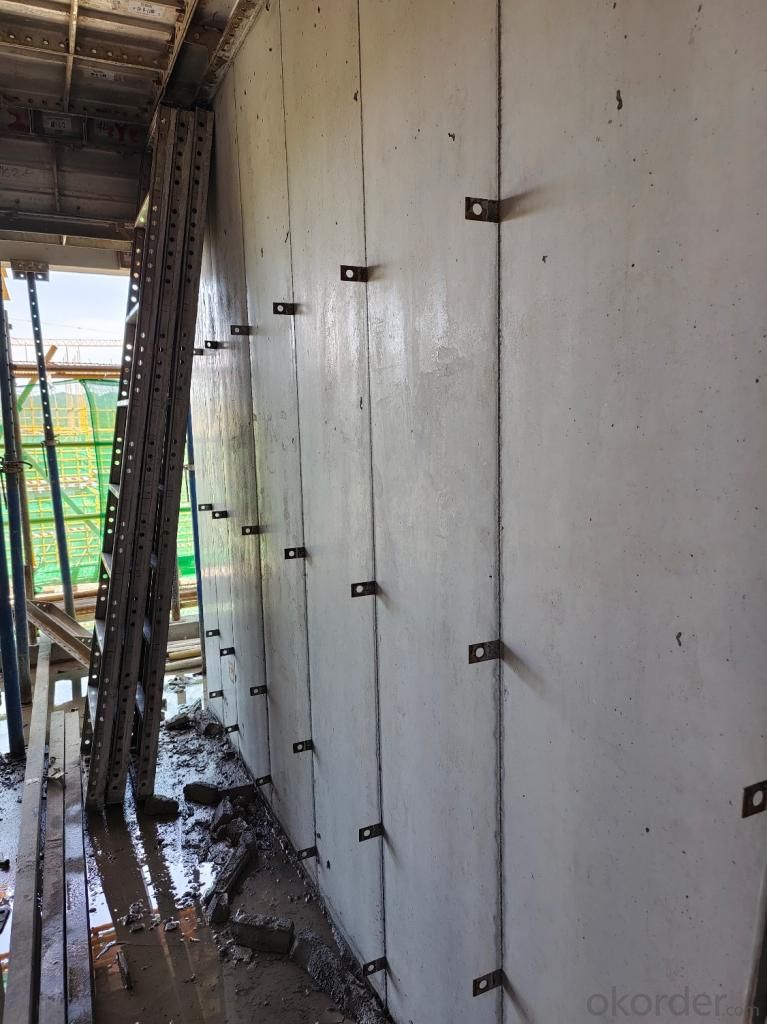
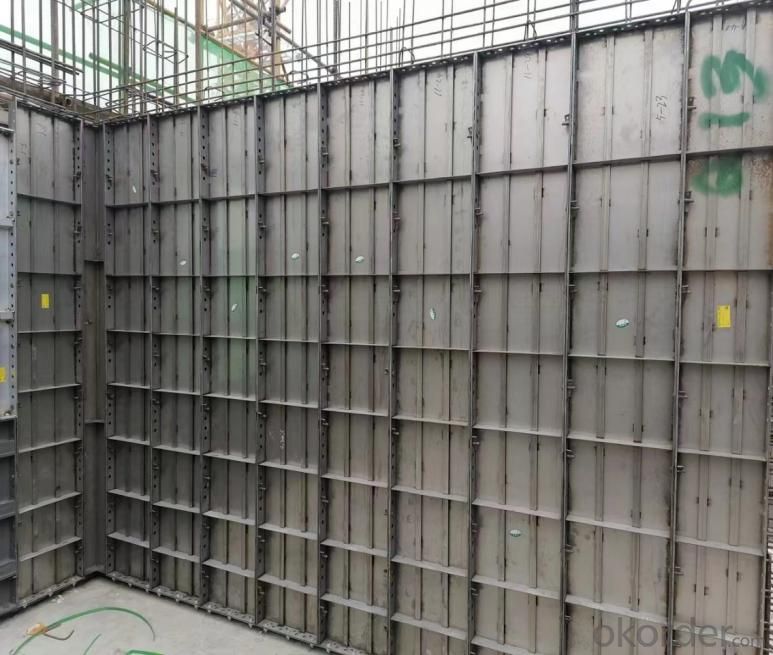
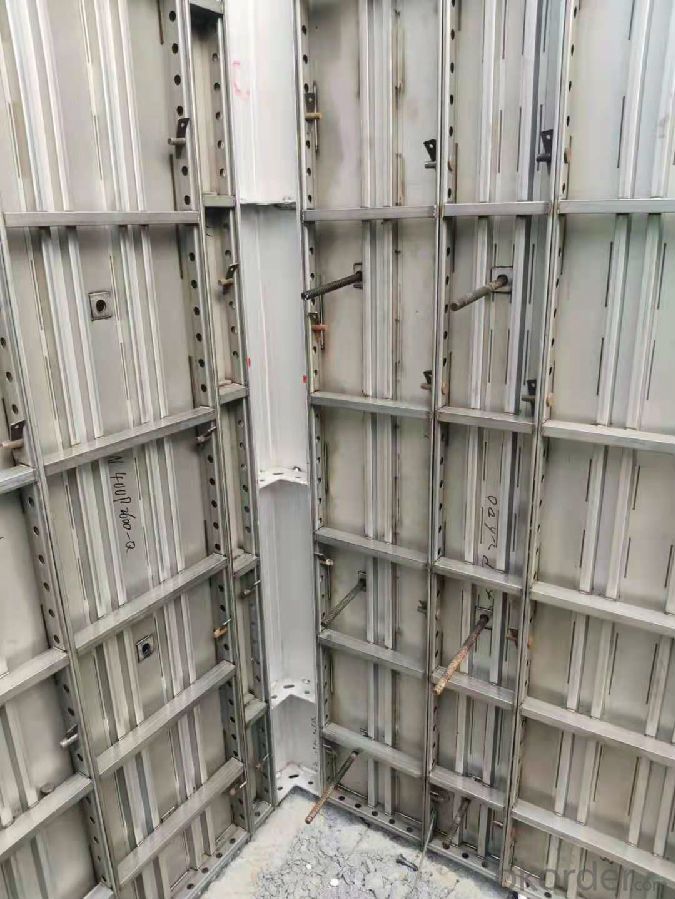
- Q:How does steel formwork handle complex geometries?
- Construction projects can easily manage complex geometries using steel formwork, which is known for its versatility. Unlike traditional wooden formwork, steel formwork is custom-made to fit the project's specific requirements, allowing for the creation of intricate and complex shapes. Modular components are used to construct steel formwork, which can be assembled and adjusted to accommodate various geometric configurations. This flexibility enables it to handle challenging shapes like curves, arches, and irregular structures, which would be difficult to achieve with other types of formwork. In addition, steel formwork offers superior strength and stability, allowing it to withstand the pressure exerted by the concrete during pouring and curing. This strength enables the construction of tall and complex structures without compromising the integrity of the formwork system. Furthermore, steel formwork can be easily reused multiple times, making it a cost-effective solution for managing complex geometries. Its durability and resistance to wear and tear ensure that it can be used for numerous projects, further enhancing its economic viability. Moreover, steel formwork provides a smooth and consistent finish to the concrete surface, resulting in high-quality end products. This is especially important when dealing with complex geometries, as any imperfections or inconsistencies could be more noticeable. In conclusion, steel formwork is a reliable and efficient solution for managing complex geometries in construction. Its versatility, strength, reusability, and ability to provide a smooth finish make it an ideal choice for projects with intricate and challenging shapes.
- Q:Can steel formwork be used for power plant construction projects?
- Yes, steel formwork can be used for power plant construction projects. Steel formwork offers high strength, durability, and flexibility, making it suitable for constructing various structures, including power plants. It provides a stable framework for concrete pouring, ensuring the accuracy and quality of the construction. Additionally, steel formwork can be reused multiple times, making it cost-effective for large-scale projects like power plants.
- Q:How does steel formwork handle concrete pumping and placing?
- Steel formwork is well-suited to handle concrete pumping and placing due to its strength and durability. It provides a rigid structure that can withstand the pressure and force exerted during the pumping process without deforming or collapsing. Additionally, steel formwork offers a smooth surface that allows for easy and efficient placement of concrete, ensuring proper consolidation and adherence to the formwork. Its robust nature also allows for multiple uses and easy cleaning, making it a preferred choice for concrete pumping and placing.
- Q:What are the common applications of steel formwork?
- Steel formwork is widely used in the construction industry for various applications. Some of the common applications of steel formwork include: 1. Concrete construction: Steel formwork is commonly used for casting concrete structures such as walls, slabs, columns, and beams. It provides a strong and rigid framework that holds the concrete in place until it hardens and gains sufficient strength. 2. High-rise buildings: Steel formwork is often used in the construction of high-rise buildings due to its durability and strength. It can withstand the pressure and weight of the concrete, ensuring the stability and safety of the structure. 3. Bridges and tunnels: Steel formwork is also used in the construction of bridges and tunnels. It allows for the precise shaping of concrete elements such as piers, abutments, and tunnel linings, ensuring the structural integrity and functionality of these infrastructure projects. 4. Industrial structures: Steel formwork finds extensive applications in the construction of industrial structures such as factories, warehouses, and power plants. It provides a robust framework that can withstand heavy loads and harsh working conditions. 5. Water retaining structures: Steel formwork is commonly used for constructing water tanks, reservoirs, and swimming pools. It ensures that the concrete is poured and cured accurately to prevent any leakage or seepage of water. 6. Architectural features: Steel formwork is also used for creating intricate architectural features such as decorative facades, curved walls, and unique shapes. Its flexibility allows for precise molding and shaping of concrete to achieve the desired design aesthetics. 7. Infrastructure projects: Steel formwork is essential for various infrastructure projects like dams, tunnels, culverts, and retaining walls. It provides a sturdy framework that supports the concrete during construction and ensures the long-term stability and functionality of these structures. Overall, steel formwork is an essential component in the construction industry, providing a reliable and efficient method for casting concrete structures in a wide range of applications. Its strength, durability, and flexibility make it a popular choice for many construction projects.
- Q:How does steel formwork contribute to the overall strength of a structure?
- Using steel panels and frames, steel formwork is a construction technique employed to create temporary molds for pouring concrete. This method offers several advantages over traditional wooden formwork, particularly in terms of strengthening a structure. Firstly, steel formwork boasts exceptional durability and resistance to wear and tear. Steel is a sturdy material capable of withstanding heavy loads and extreme weather conditions. Unlike wooden formwork, it does not warp, crack, or deteriorate over time, ensuring the structure's strength and integrity are maintained for an extended period. Furthermore, steel formwork provides superior dimensional stability compared to other materials. The precision fabrication of steel panels and frames guarantees accurate measurements and consistent shapes. This precision allows for a more even distribution of concrete, resulting in a stronger structure with reduced cracks or weaknesses. Moreover, steel formwork allows for greater flexibility in design and construction. The strength of steel permits the creation of intricate and complex structures that may not be achievable with alternative formwork materials. The versatility of steel formwork enables engineers to design structures with unique shapes and configurations, ultimately enhancing their overall strength and load-bearing capacity. Additionally, steel formwork contributes to the overall strength of a structure by offering excellent support and reinforcement during the concrete pouring process. Acting as a framework, the steel panels and frames hold the concrete in place until it solidifies and gains strength. This ensures proper and optimal curing of the concrete, resulting in a structurally sound and resilient structure. In conclusion, steel formwork plays a vital role in enhancing the overall strength of a structure. Its durability, dimensional stability, flexibility in design, and support during the concrete pouring process all contribute to creating a robust and long-lasting structure. By choosing steel formwork, construction projects can achieve higher levels of strength, durability, and structural integrity.
- Q:Can steel formwork be used for projects with complex geometries?
- Yes, steel formwork can be used for projects with complex geometries. Steel formwork offers high strength and durability, which makes it suitable for handling complex shapes and intricate designs. Steel formwork can be easily fabricated and customized to meet the specific requirements of the project, allowing for the creation of complex geometries without compromising on structural integrity. Additionally, steel formwork provides excellent dimensional stability, ensuring precise and accurate construction of complex shapes. The versatility and flexibility of steel formwork make it a preferred choice for projects that involve intricate and complex geometries.
- Q:What are the different sizes and dimensions available for steel formwork panels?
- The sizes and dimensions of steel formwork panels can vary depending on the manufacturer and specific project requirements. However, common sizes range from 1.2 meters by 1.8 meters to 3 meters by 6 meters. Additionally, panels can have different thicknesses, typically ranging from 12mm to 18mm.
- Q:How does steel formwork prevent concrete spillage?
- Steel formwork prevents concrete spillage by providing a strong and rigid structure that holds the wet concrete in place during the pouring and curing process. The steel panels create a tight enclosure around the concrete, preventing any leakage or spillage, ensuring that the concrete is properly contained within the desired shape and form.
- Q:Can steel formwork be used for both monolithic and composite structures?
- Indeed, steel formwork is applicable to both monolithic and composite structures. This option is known for its versatility and durability, enabling it to endure the pressures and forces associated with these two types of constructions. For monolithic structures, wherein concrete is poured continuously, steel formwork plays a crucial role in providing the necessary support and containment for the fresh concrete. Its easy assembly and disassembly facilitate the efficient construction of monolithic structures like walls, slabs, and columns. The robustness and rigidity of steel formwork ensure its ability to withstand the weight and pressure of the concrete during pouring and curing. On the other hand, composite structures involve combining various materials, such as steel and concrete, to create a more efficient and sturdy structure. In this case, steel formwork can be employed to provide support for the concrete component while accommodating other materials like steel beams or columns. The adaptability of steel formwork allows for the integration of different materials, making it suitable for constructing composite structures like bridges, high-rise buildings, and industrial facilities. In both scenarios, steel formwork offers several advantages compared to other formwork materials. Its strength and durability guarantee the ability to withstand the pressures and forces exerted during construction, thereby resulting in a safer and more efficient building process. Moreover, steel formwork can be reused multiple times, reducing construction costs and minimizing waste. All in all, steel formwork is a reliable and versatile choice for both monolithic and composite structures.
- Q:What are the different types of steel connectors used in steel formwork?
- There are several types of steel connectors used in steel formwork, including wedge bolts, tie rods, formwork clamps, anchor nuts, and wing nuts. These connectors play a vital role in securing and stabilizing the formwork system, ensuring the structural integrity and safety of the concrete construction process.
1. Manufacturer Overview |
|
|---|---|
| Location | |
| Year Established | |
| Annual Output Value | |
| Main Markets | |
| Company Certifications | |
2. Manufacturer Certificates |
|
|---|---|
| a) Certification Name | |
| Range | |
| Reference | |
| Validity Period | |
3. Manufacturer Capability |
|
|---|---|
| a)Trade Capacity | |
| Nearest Port | |
| Export Percentage | |
| No.of Employees in Trade Department | |
| Language Spoken: | |
| b)Factory Information | |
| Factory Size: | |
| No. of Production Lines | |
| Contract Manufacturing | |
| Product Price Range | |
Send your message to us
Best qaulity of wall steel formwork, Stainless Steel Formwork,formwork for concrete walls
- Loading Port:
- Shanghai
- Payment Terms:
- TT or LC
- Min Order Qty:
- 1 set
- Supply Capability:
- 1000000 set/month
OKorder Service Pledge
OKorder Financial Service
Similar products
New products
Hot products
Related keywords
